Prime Minister Justin Trudeau says Yukon’s spike in COVID-19 cases is a reminder that Canadians have to remain careful, despite a growing rate of vaccinations.
The latest:
- Yukon’s spike in cases a reminder for all Canadians to remain careful, PM says.
- Trudeau rolls up his sleeve to get 2nd dose of COVID-19 vaccine.
- Why Canada is divided over reopening despite controlling COVID-19.
- Alberta health minister and family swarmed by COVID protesters on Canada Day.
- Alberta lifts most COVID-19 restrictions but not all Edmonton shops ready to ditch masks.
- Calgary-area man first to win $1M in Alberta COVID-19 vaccine lottery.
- Germany recommends combination of AstraZeneca, mRNA vaccines.
- India virus death toll tops 400,000 and experts say it’s higher.
- Have a coronavirus question or news tip for CBC News? Email: [email protected] or join us live in the comments now.
Prime Minister Justin Trudeau on Friday said Canada is on the right track to end the pandemic but is “not quite out of the woods yet.” The spike in COVID-19 cases in Yukon is a reminder that all Canadians have to remain careful despite a growing rate of vaccinations, Trudeau said at a news conference at Ottawa’s Lansdowne Park.
Although the territory has more than 86 per cent of its eligible population vaccinated against the illness with a first dose, and over 76 per cent fully vaccinated, it’s still “facing the biggest spike in cases right now since the pandemic began,” he said.
Yukon’s chief medical officer of health, Dr. Brendan Hanley, reported 15 new cases of COVID-19 on Wednesday.
Hanley is “strongly recommending” that Yukoners take steps to limit contacts over the next four to six weeks, the territorial government’s website said.
Trudeau said Intergovernmental Affairs Minister Dominic LeBlanc has spoken with Yukon Premier Sandy Silver and “we’re working with the territory on whatever we can do to help.”
The minister received his second dose of a COVID-19 vaccine on Friday, rolling up sleeve for a shot of the Moderna mRNA vaccine at an Ottawa pharmacy.
His wife, Sophie Gregoire Trudeau, got her second dose on Thursday. The Trudeaus got their first doses in late April and received the AstraZeneca-Oxford vaccine.
WATCH | COVID-19 limited Canadian immigration and made it more difficult for newcomers:
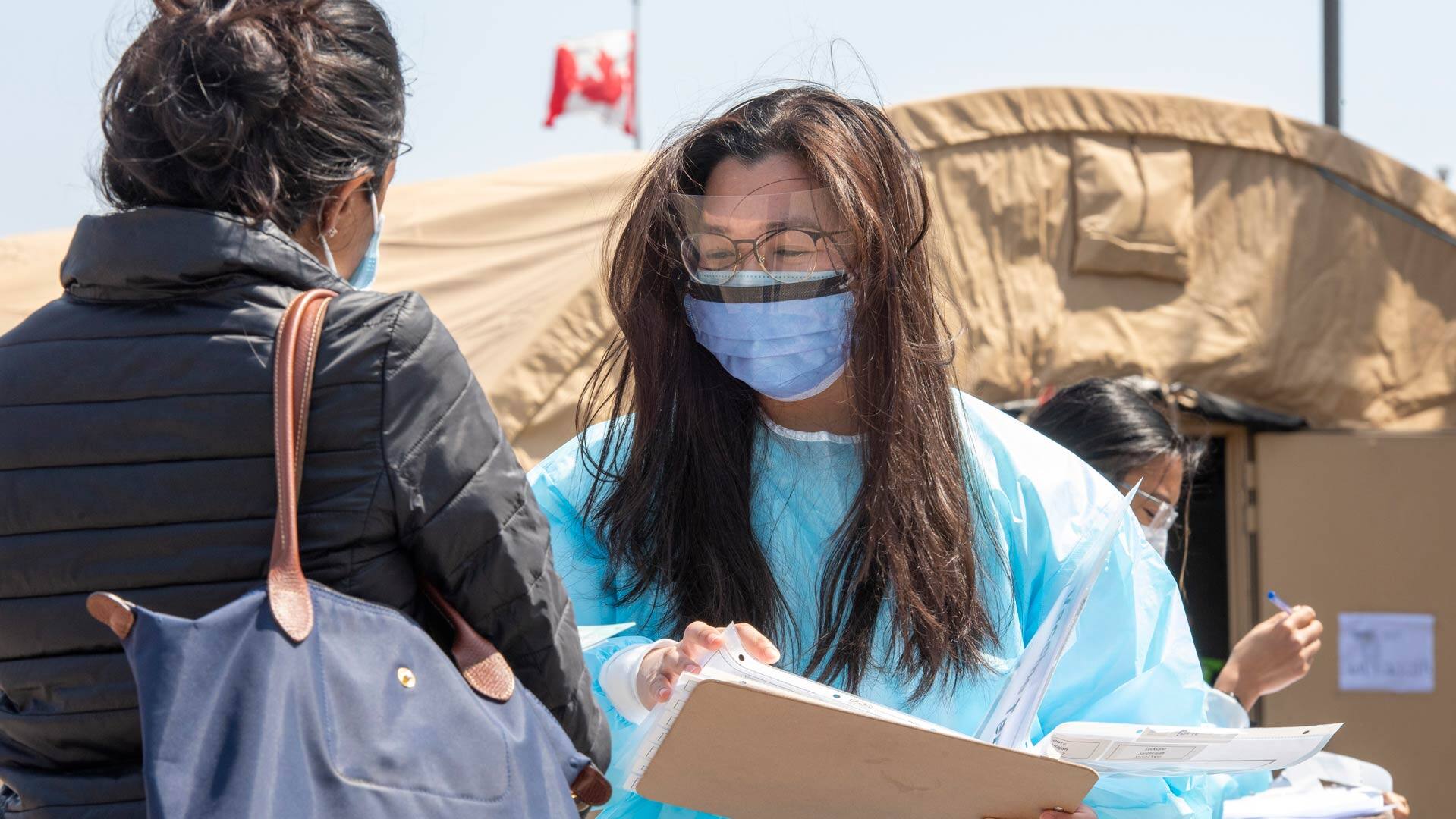
COVID-19 didn’t just limit the number of newcomers arriving in Canada, it also made their readjustment more difficult. 2:27
Canada’s National Advisory Committee on Immunization (NACI) updated its guidance earlier this month, allowing for the Moderna and Pfizer vaccines to be used interchangeably, due to the fact that they both use a similar mRNA technology. NACI also said a first shot of the AstraZeneca vaccine can be followed by either Moderna or Pfizer.
Trudeau has said vaccinations are a path out of the pandemic and praised Canadians in his Canada Day message for getting their shots to help life return to normal.
What’s happening across Canada
As of 11 a.m. ET on Friday, Canada had reported 1,415,959 confirmed cases of COVID-19, with 6,936 considered active. A CBC News tally of deaths stood at 26,330 earlier Friday. More than 38 million COVID-19 vaccine doses have been administered so far across the country.
Many provinces did not report numbers Thur.sday due to the holiday.
Ontario logged 200 new cases of COVID-19 and nine more deaths on Friday. It also recorded 284 new cases with 19 additional deaths on Thursday.
Quebec reported 69 new cases of COVID-19 and three more deaths on Friday.
British Columbia entered the next phase of its reopening plan on Thursday, lifting the state of emergency in place since March 2020.
The loosening of restrictions means residents can dine indoors and outdoors with no limit on numbers, and attend fairs and festivals with a communicable disease plan. The province is also allowing outdoor gatherings of up to 5,000 people.
Masks will no longer be mandatory before further restrictions are removed in September, though Provincial Health Officer Dr. Bonnie Henry has encouraged people to continue wearing them indoors.
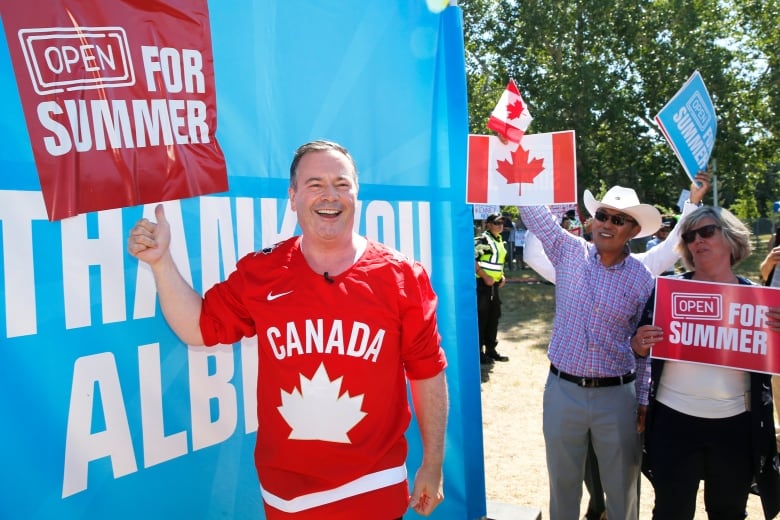
Alberta lifted almost all its remaining COVID-19-related restrictions on Thursday, ending capacity limits on restaurants, stores and places of worship, as well as limits on indoor and outdoor social gatherings.
The entire province, with the exception of Calgary, is also lifting its mask mandate.
WATCH | Alberta drops most COVID-19 restrictions, including mask mandate:
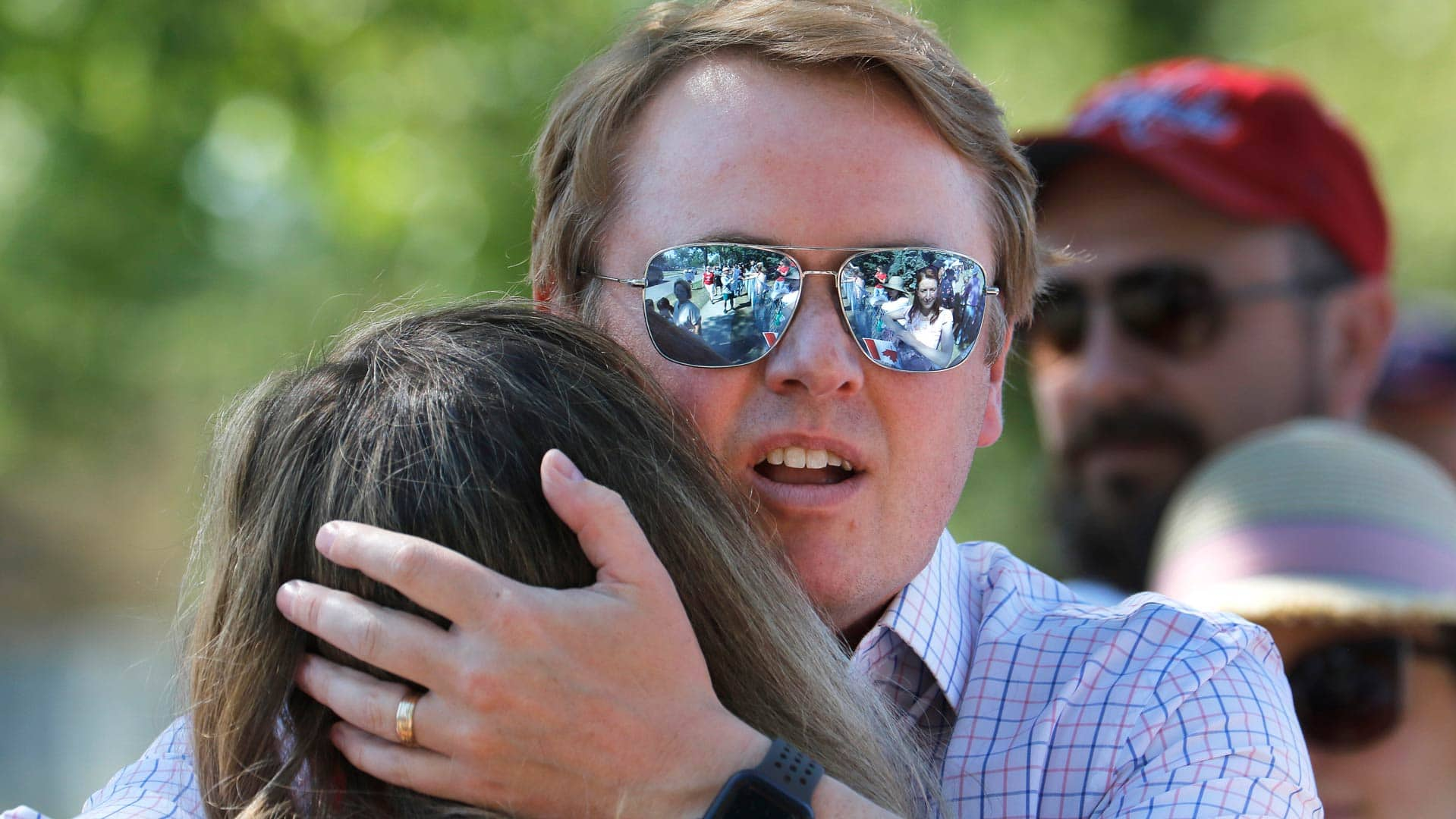
Alberta has reopened for the summer by dropping nearly all of their COVID-19 restrictions, including its provincial mask mandate. 2:02
Newfoundland and Labrador on Thursday reopened to non-essential travellers from outside Atlantic Canada who fill in an entry form.
The province reported one new case of COVID-19 on Friday.
New Brunswick reported no new cases of COVID-19 on Thursday after three new cases were confirmed the previous day.
Nova Scotia reported two new cases of COVID-19 on Friday.
P.E.I. did not report any new cases on Thursday.
What’s happening around the world
As of early Friday, more than 182.6 million cases of COVID-19 had been reported around the world, according to data published by Johns Hopkins University in the United States. The reported global death toll stood at more than 3.9 million.
In Europe, Germany is recommending that all people who get a first shot of the AstraZeneca vaccine switch to a different type of vaccine for their second shot. The aim is to increase the speed and effectiveness of vaccinations as the more contagious delta variant spreads.
German Health Minister Jens Spahn said the addition of the mRNA shot provides more protection against the delta variant, which is endemic in Britain and is expected to become so in Germany this month, than would two shots of AstraZeneca’s vaccine.
In the Asia-Pacific region, the delta variant of the coronavirus is surging, with a major spike in South Korea.

The country reported 826 new cases on Friday, its highest in almost six months. Most of the cases were reported in and around the capital, Seoul.
Health officials have linked the surge to both summertime gatherings and the spread of the more infectious variant.
Japan reported earlier in the week that the delta variant now accounts for nearly a third of all cases in the eastern part of the country, including Tokyo, and that could grow to 50 per cent by mid-July.
On Friday, Tokyo governor Yuriko Koike reiterated that a ban on spectators for the Olympic Games, which start on July 23, would be an option if the COVID-19 situation worsened.
The variant, first detected in India in December last year, has spread to about 100 countries, and the World Health Organization warned recently that it could soon become the dominant form of the virus.
India on Friday crossed the grim milestone of more than 400,000 people lost to COVID-19, a number that, though massive, is still thought to be a vast undercount because of a lack of testing and reporting.
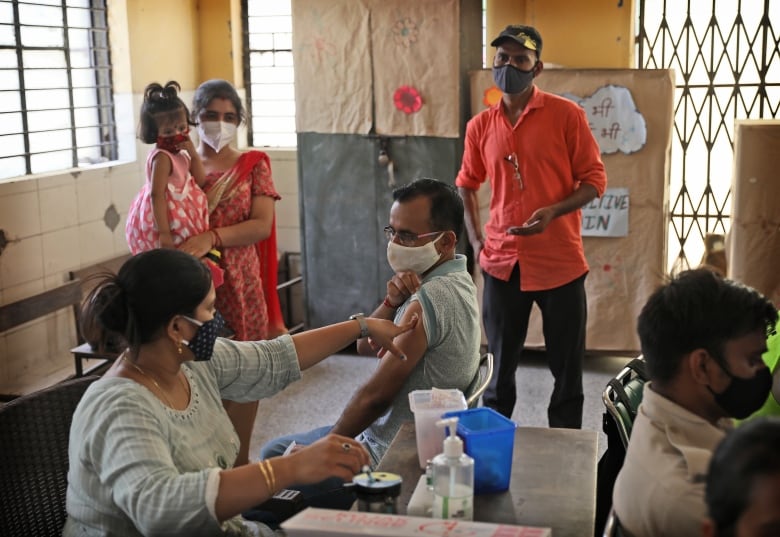
More than half of India’s reported coronavirus deaths — the third-most of any country — have occurred over the past two months as the delta variant of the virus tore through the country and overwhelmed the already strained health system.
New cases are on the decline after exceeding 400,000 a day in May, but authorities are preparing for another possible wave and are trying to ramp up vaccination.
The country’s health ministry said that 853 people died in the past 24 hours, raising total fatalities to 400,312. It also reported 46,617 new cases, taking the country’s pandemic total past 30.4 million.
India, a country of nearly 1.4 billion people, is the third to cross 400,000 deaths, after the United States and Brazil.
WATCH | Delta variant forces shutdowns in Australia and Bangladesh:
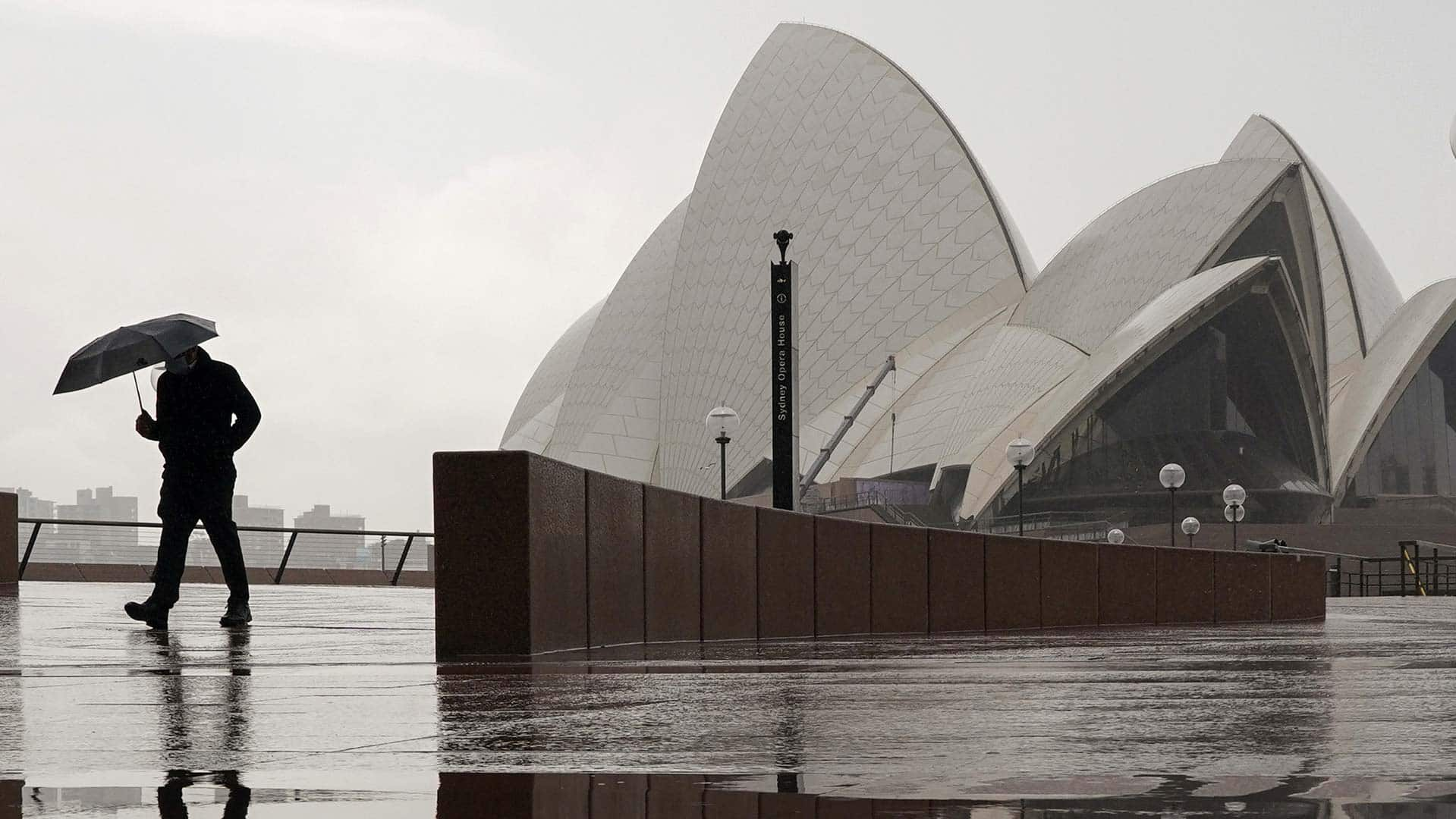
As the delta variant spreads throughout the Southern Hemisphere, there are calls that vaccines be transferred there to treat high-risk people there. 2:00
Experts believe India’s reported deaths and infections are massive undercounts. They say an untold number of people died during the April and May surge outside of hospitals and before they could be tested for the virus.
A model from the University of Washington’s Institute for Health Metrics and Evaluation estimates there have been more than 1.1 million COVID-19 deaths in India.
India’s federal ministers from the ruling Bharatiya Janata Party have dismissed reports of undercounting as exaggerated and misleading.
Have questions about this story? We’re answering as many as we can in the comments.
